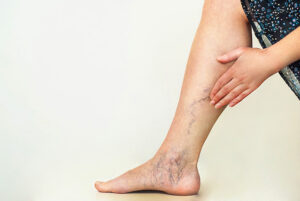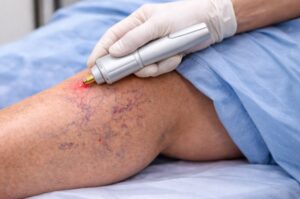In this comprehensive article, we will delve into the world of nerve damage after surgery, offering insights into the causes, diagnosis, recovery, and various treatment options. Nerve damage is a complex issue that can affect many patients’ post-surgery. It is essential to understand the nuances of this condition to make informed decisions about your health.
Table of Contents
Overview
Nerve damage following surgery is a challenging complication that can occur due to various factors. Understanding how it happens and its implications is crucial for anyone considering a surgical procedure.
Diagnosis
Diagnosing nerve damage is the first step towards effective treatment. Learn about the tests and procedures used to determine nerve damage post-surgery.
Recovery Time
Recovery time can vary significantly based on the type and severity of nerve damage. Discover what you can expect during the recovery process and how long it may take.
Treatments
Explore the various treatment options available for nerve damage after surgery, from OrthoBiologics to physical therapy and medications designed to alleviate pain and promote healing.
Nerve Damage Patients’ Stories
Real-life experiences of individuals who have dealt with nerve damage post-surgery can provide valuable insights and inspiration for those facing a similar journey.
What Happens When Your Nerves Are Damaged?
Nerve damage can be likened to a garden hose with an obstruction. Scar tissue formation around a nerve is one of the leading causes of nerve damage post-surgery. This scar tissue can impede the flow of critical chemicals needed for nerve health.
Nerves consist of bundles of neurons known as fascicles, which can be damaged, leading to nerve dysfunction. The nerve is also surrounded by a protective sheath called myelin, which, when damaged, can further disrupt nerve function.
Three Types of Nerve Damage
Neurapraxia: Damage to the myelin sheath.
Axonotmesis: Damage to the nerve itself or the neurons.
Neurotmesis: The nerve is torn or cut in half.
How Common Is Nerve Damage After Surgery?
Understanding the prevalence of nerve damage is essential. The occurrence of permanent nerve damage varies by the type of surgery, with some procedures carrying a higher risk.
- Hip replacement: 0.2% to 0.6%
- Low back fusion surgery (transient nerve injury lasting less than three months): 50% to 62%
- Shoulder replacement surgery: 21% had temporary nerve damage, 2% had permanent nerve damage
What Tests Show Nerve Damage?
Various tests can help diagnose nerve damage post-surgery:
- EMG/Nerve Conduction Study: An electrical test of nerve function.
- Ultrasound Imaging of the Nerve: This non-invasive test can detect swelling or constriction.
- MR Neurography: A specialized MRI scan for nerve visualization.
How Long Does It Take for Nerves to Repair After Surgery?
The duration of nerve damage recovery can vary. Most cases resolve within a few weeks to a few months. If the damage is severe, nerve regrowth can be slow, taking years, or may be impeded by scar tissue.
What Helps with Nerve Pain After Surgery?
Pain management is a critical aspect of post-surgery nerve damage treatment. Various options can alleviate pain and aid in the healing process.
- OrthoBiologics, such as platelet-rich plasma (PRP).
- Physical therapy.
- Medications like Neurontin (Gabapentin), Lyrica (Pregabalin), Elavil (Amitriptyline), Topomax (Topiramate), and Ultram (Tramadol).
Ultrasound-Guided Nerve Hydro dissection With OrthoBiologics
Discover an innovative approach to breaking up scar tissue around nerves. Ultrasound-guided nerve Hydro dissection with OrthoBiologics is a cutting-edge procedure that uses the patient’s own growth factors to assist nerve repair and eliminate scar tissue. This minimally invasive technique can be a game-changer for individuals with nerve damage.
In conclusion, nerve damage after surgery is a challenging but treatable condition. Early diagnosis and a comprehensive treatment plan can significantly improve the prognosis for patients dealing with this issue.
Frequently Asked Questions (FAQs)
1. Is nerve damage after surgery common?
Nerve damage after surgery can occur but varies in prevalence depending on the type of surgery. It’s more common in some procedures than others.
2. What are the symptoms of nerve damage after surgery?
Common symptoms include numbness, tingling, burning, muscle weakness, or atrophy. These symptoms can be temporary or, in some cases, permanent.
3. Can nerves fully recover after surgery-induced damage?
Nerve recovery depends on the extent of the damage and the presence of scar tissue. In some cases, full recovery may take years, while in others, it may not be possible.
4. What are the latest advancements in nerve damage treatment?
Ultrasound-guided nerve Hydro dissection with OrthoBiologics is an innovative approach that shows promise in breaking up scar tissue and promoting nerve repair.
5. How can I prevent nerve damage after surgery?
Preventing nerve damage often relies on the skill of the surgeon and careful post-operative care. Discuss your concerns with your healthcare provider to minimize risks.







